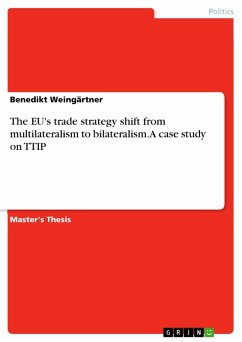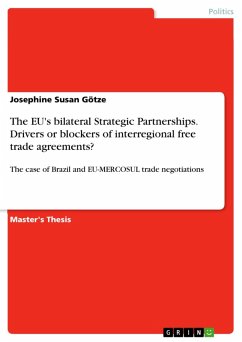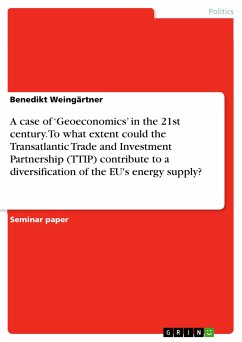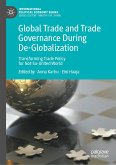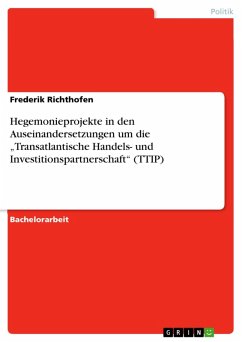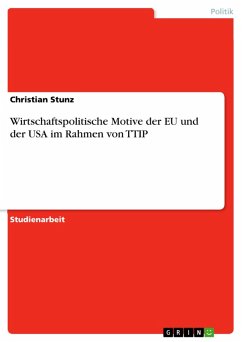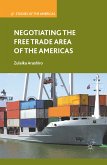Master's Thesis from the year 2017 in the subject Politics - Topic: Globalization, Political Economics, grade: sehr gut, College of Europe, language: English, abstract: Foreign commercial policy represents a major domain of European integration and an exclusive policy competence for the European Union. The strategy, focus and practical approach of this EU trade policy has been continuously adapted to the new circumstances in an ever more globalised world economy. Thus, the EU uses its foreign trade policy not just for mere economic ends but also as a tool to strengthen its global political influence. Having been a champion of multilateral trade negotiations in the framework of the World Trade Organisation (WTO) throughout the 1990s, the has EU changed this strategic orientation by the mid-2000s shifting its trade policy focus from a multilateral to a bilateral strategy and initiated preferential free trade agreements (FTA) with countries and regions all over the world. Among them, the one with the largest size was the Transatlantic Trade and Investment Partnership (TTIP) with the United States of America, launched in 2013. Given the huge importance of the EU as a player in global trade, it seems relevant to examine from a political scientific perspective what have been the main reasons, drivers and motivations behind this enormous policy shift. I argue that external factors, domestic interests and institutional dynamics have collectively contributed to the reorientation of EU trade policy from multi- to bilateralism. I will test this hypothesis by means of three theoretical approaches: neorealism as a systemic theory, liberalism as a theory with a domestic focus and institutionalism to examine the role of the most important EU institution in trade policy, the European Commission. In order to get a more profound analysis of the main actors and motivations as driving forces of EU trade policy, I will furthermore use a case study on the, both in ambition and size, unrivalled bilateral Transatlantic Trade and Investment Partnership as it, due to its sheer economic and political impact on the both partners involved but also on the rest of the world, provides best significant insights of processes on all three levels of analysis of this paper. In a nutshell, the global power shift for the benefit of emerging powers and to the detriment of Europe in combination with strong economic interest groups within the EU seeking for market access all over the world as well as self-interests, norms and processes within the European Commission have altogether contributed to the change of course in EU trade policy towards bilateralism.
Dieser Download kann aus rechtlichen Gründen nur mit Rechnungsadresse in A, B, BG, CY, CZ, D, DK, EW, E, FIN, F, GR, HR, H, IRL, I, LT, L, LR, M, NL, PL, P, R, S, SLO, SK ausgeliefert werden.

